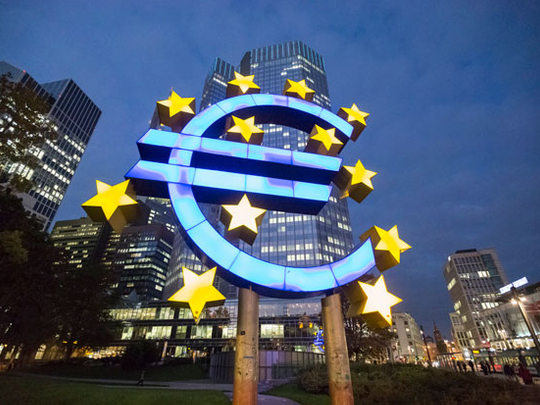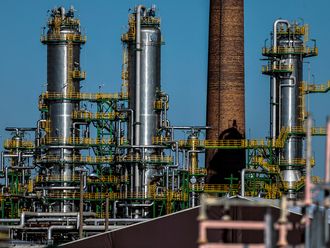
Dubai: A plunging euro may trigger a flood of cheaper imports from Europe to the UAE, keeping a lid on inflation, which has been edging higher off late.
On Monday, the euro sank to its nine-year low against the highflying dollar, which has made imports to the UAE cheaper by as much as 15 per cent compared to last year.
The euro has been on a downward trend on expectations that the European Central Bank will soon beef up its stimulus program, along with political problems in Greece.
“Since we are an import-based economy, the falling euro is a good news for us. So not only prices of food items would come down, cost of watches, clothes etc would also come down,” Ajay Dayal, chief executive officer of Tridayle Consulting, which advises big retailers on their import strategy.
Imports from Europe represent 22 per cent of total imports in the UAE. Most of the food items like meat, cheese, vegetables, fruits come from the Eurozone, including fashion items comes from Spain, Germany etc.
Cheaper food items would give more money in the hands of the consumers, who have been adversely impacted by rising rents.
“The falling euro would reduce the cost of imports and curb the UAE inflation by 2.5 per cent, which was under some upward pressure recently,” said Jaap Meijer, managing director with Aarqaam Capital.
The inflation rate in consumer prices for the first 11 months of 2014 reached 3.1 per cent compared with the same period of 2013. The ‘housing, water, electricity, gas, and other fuels’ segment accounted for the largest increase in the price index during the first 11 months of 2014, contributing 44.3 per cent to the change.
Euro to fall further:
“Even though long US Dollar appears a crowded trade, we expect the euro to fall further, with US rates rising and further QE in the Eurozone,” said Meijer.
Ashwin Shetty, vice-president treasury at UAE Exchange, agreed.
“Europe is still not out of the woods. They are still in deflation. Going forward, euro will come much lower this year. It may go down further again. It may come down to 1.10 to a dollar by October,” said Shetty.
Importers have been taking the opportunity to make payments to European exporter. Car importers, chemicals and building suppliers, which have been delaying the payments, are utilising this opportunity to make payments. Payment volumes have gone up by three folds, said UAE Exchange’s Shetty.












